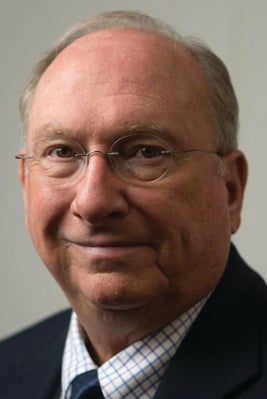OPINION: Foundation Forward, Charters of Freedom — Dr. Josiah Bartlett
Published 2:27 pm Tuesday, December 5, 2023
Founding Fathers and other Influencing Citizens. How They Served Our Country
This Month: Dr. Josiah Bartlett
This is an American history educational moment of those who made a difference during the Revolutionary War era and how they served the country.
Josiah Bartlett was an uncommon person born into a typical colonial family.

David Streater
Josiah was born on Nov. 21, 1729, in Amesbury, Massachusetts. He was Stephen and Hannah’s fourth son and fifth child. As an ordinary family of the era, the Bartletts tended a farm while Stephen also worked as a cobbler.
Josiah attended the town’s community school until he was 16. His common school education included Latin and Greek. Bartlett’s language courses helped position him to study and learn medicine under his preceptor, Dr. Ordway.
Working and learning the practice of medicine, Barlett became accomplished at compounding drugs, delivering babies, treating injuries and other medical treatments. After several years of training, practical experience and apprenticeship, Josiah was announced as Dr. Bartlett.
As Kingston, New Hampshire, needed a physician, Josiah moved and established medical and dental practices. During his 45-year medical career, Bartlett developed a “stellar reputation among his colleagues and patients as a man of independent thinking and keen understanding.”
Bartlett was elected to the New Hampshire legislature early in his political life. During the Stamp Act uproar, “the Royal Governor [of New Hampshire] attempted to bribe Bartlett into siding with the Crown, but Bartlett ‘rejected every overture.’ ” During the next several years, Josiah was vital in several positions “as an active advocate against British oppression.” He was a commander in the New Hampshire militia and a member of the Committee of Safety. In the mid-1770s, as a state legislator, “he cast his lot with the Revolutionaries.”
Barlett was elected to the first provisional Congress when the Royal Governor dissolved the colonial assembly. In 1775, he was elected to the Continental Congress. As revenge, British terrorists burned his home to the ground, and he could not attend the Congressional sessions.
He was again elected to Congress. This time, he was able to attend, and on July 2, 1776, he voted for independence. “Two days later, he cast the first vote to approve the Declaration.”
Bartlett and John Hancock were the first to sign the document. During the Revolutionary War, Bartlett treated sick and wounded troops and was also a leading proponent of creating the United States Navy.
During his lifetime, Bartlett was a justice of the peace, associate chief judge, and chief justice of the superior court. He also promoted the use of science in agriculture, manufacturing, canal projects and the expansion of roads. Moreover, Bartlett was the president and then governor of New Hampshire. Along with being a signer of the Declaration of Independence, his other most cherished time was creating and being the first president of the New Hampshire Medical Society.
A year after leaving public service, this endearing and principal Founding Father died at 65 on May 19, 1795. Bartlett, New Hampshire, is named in his honor. Barlett was buried beside his wife, Mary, at the Universalist Church in Kingston.
Please visit your Charters of Freedom at 144 N. 2nd St., Albemarle. A Charters of Freedom setting consists of the Declaration of Independence, the United States Constitution and the Bill of Rights. Visit (FoundationForward.com) to learn more.
Teachers are encouraged to contact Streater for info and complementary student education materials to enhance experiential field trips to a Charters of Freedom settings. Please email Streater (david.streater@mymail.barry.edu) for engraved legacy paver info and complementary educational materials.
Dr. David Streater is the director of education for Foundation Forward, the organization which placed life-size replicas of the United States Constitution, Declaration of Independence and the Bill of Rights, also known as the Charters of Freedom, in downtown Albemarle. He is a retired college instructor/administrator and a retired probation and parole officer/administrator. In addition, he is a criminologist with an acute history interest, served in the Navy, is a resident of Burke County and is a graduate of Pfeiffer University.


